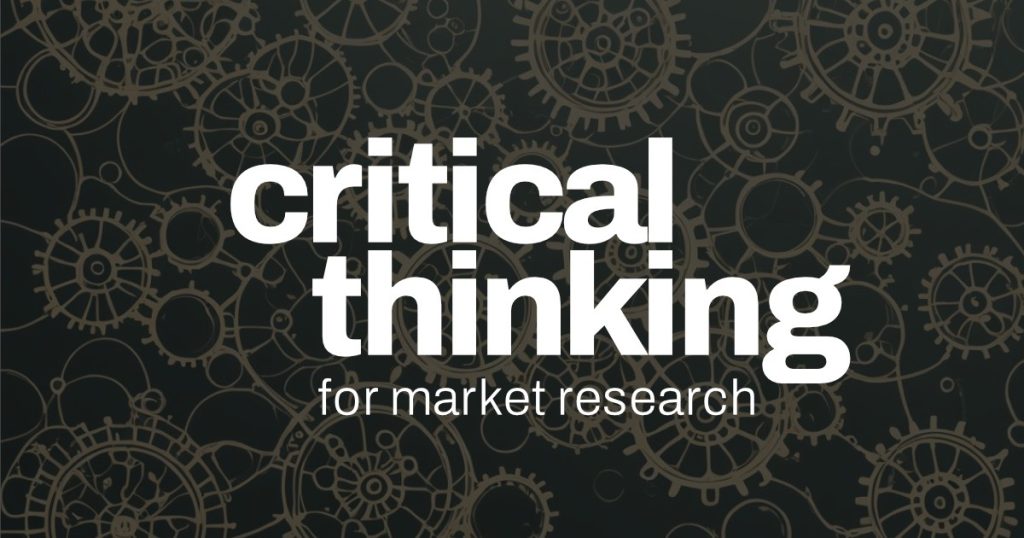Critical thinking plays a pivotal role in research, enabling researchers to analyze, evaluate, and make sense of knowledge in a rational way. It is a domain-general thinking skill that is essential for various fields, including education, research, finance, management, and the legal profession.

What is domain-general thinking?
Domain-general thinking refers to the cognitive abilities that are widely applicable across various domains, tasks, and contexts. It encompasses skills such as problem-solving, reasoning, and decision-making, which are not specific to a particular domain or subject area.
Domain-general thinking is essential for adapting to new situations, learning, and developing expertise in various areas. It is a key component of human cognitive flexibility and creativity.
Problem-solving, reasoning, and decision-making are abilities considered as “general” because they can be applied to different domains, such as science, mathematics, or language, to solve problems or make decisions.
Domain-general thinking is often automatic and unconscious, allowing us to think creatively and make connections between seemingly unrelated concepts. It is essential for problem-solving, learning, and decision-making in various aspects of life.
Key aspects critical thinking in research.
Critical thinking is an indispensable skill in research, enabling researchers to conduct thorough literature reviews, design appropriate research methods, solve problems, make informed decisions, and maintain the quality and integrity of their research. The following are relevant aspects of critical thinking essential for attaining quality market research results:
1. Literature Review and Identifying Gaps
Critical thinkers engage in thorough literature reviews, identifying gaps and inconsistencies in existing research. By examining the existing body of knowledge, researchers can structure their papers better and contribute to the advancement of knowledge.
2. Designing Research Methods
Critical thinking is crucial in designing research methods that are appropriate, feasible, and ethical for the research question or hypothesis. This involves reviewing existing literature, consulting with experts or stakeholders, and considering the practical and theoretical implications of the chosen methods.
3. Problem Solving and Decision Making
Critical thinking involves analyzing, evaluating, and synthesizing information from various sources to solve problems, make decisions, and communicate effectively. It enables researchers to approach complex issues with logic, creativity, and judgment.
4. Quality of Research
Critical thinking ensures the effectiveness of conveying research findings. It helps in scrutinizing evidence, dissecting opposing arguments, and ensuring that conclusions are based on reliable data. This is essential for maintaining the quality and integrity of research.
(continue below for Marketing Research Critical Thinking Quiz).
Quiz
This quiz assesses your ability to critically think about marketing research concepts and apply them to real-world scenarios. Consider each question carefully and choose the best answer.
1. Problem Definition: A company is experiencing declining sales of its flagship product. The marketing manager decides to conduct research to identify the reasons for the decline. Which of the following is the most critical step in this research process?
- A. Developing a questionnaire
- B. Selecting a sample
- C. Clearly defining the problem and research objectives
- D. Analyzing the data
- Research Design: A researcher wants to explore the attitudes of consumers towards a new product concept. Which research design would be most appropriate?
- A. Experimental research
- B. Descriptive research
- C. Exploratory research
- D. Causal research
- Sampling: A researcher wants to study the smartphone usage habits of teenagers in a large city. Which sampling method would be most appropriate to ensure representativeness?
- A. Convenience sampling
- B. Quota sampling
- C. Stratified random sampling
- D. Snowball sampling
- Data Collection: A company is interested in understanding the online behavior of its target market. Which data collection method would be most suitable?
- A. Mail surveys
- B. Telephone interviews
- C. Focus groups
- D. Web analytics
- Data Analysis: A researcher analyzes data from a survey and finds a correlation between income level and brand preference. Which of the following conclusions can be drawn from this finding?
- A. Income level causes brand preference.
- B. Brand preference causes income level.
- C. There is a relationship between income level and brand preference.
- D. No conclusion can be drawn.
- Ethical Considerations: A researcher offers participants a small incentive to complete a survey. However, the survey includes sensitive questions about personal finances. Which ethical principle is most likely to be violated?
- A. Informed consent
- B. Confidentiality
- C. Debriefing
- D. Beneficence
- Critical Thinking: A marketing research report states that “Product X has high customer satisfaction.” Without additional information, which of the following statements is most accurate?
- A. The majority of customers are satisfied with Product X.
- B. All customers are satisfied with Product X.
- C. The level of customer satisfaction with Product X is significantly higher than competitors.
- D. The report is likely to be biased.
- Research Limitations: A researcher conducts a survey to assess customer satisfaction with a new product. Which of the following is a potential limitation of this research?
- A. The survey may not capture all aspects of customer satisfaction.
- B. The sample may not be representative of the target population.
- C. Respondents may provide socially desirable answers.
- D. All of the above.
ANSWERS
- C
- C
- C
- D
- C
- A
- D
- D
